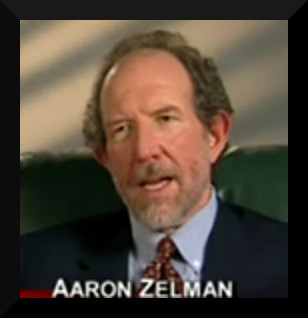
|
THE LIBERTARIAN ENTERPRISE Number 601, January 1, 2011 "Okay, here's THE PLAN" Attribute to The Libertarian Enterprise One of the freedom movement's greatest and most legendary warriors has left us. Aaron Zelman was the same age that so many of us are, sixty-four, and his passing leaves a gap in our ranks that won't be filled soon or very easily. I have agreed to write more about Aaron, in different places, in the coming days. This remembrance will be more personal. Aaron was one of those individuals—I could name a dozen others—who had been around as long as I had, and with whom I shared a lot of friends, readers, fans, followers, whatever, all of whom, at one time or another, had urgently advised us to get to know one another. I had long admired and respected him as the most reliable, consistent, and outspoken advocate of the individual right to own and carry weapons on the planet. He also seemed to have the same enemies I did. I was always busy, and I guess he was, too, so it didn't happen for years. Then a coincidence: Aaron had an idea for a novel rattling around inside his head for a decade, but he didn't consider himself a writer and never did anything about it. However at some point, he mentioned it to some individual who knew my work. I don't remember now who that was, and I apologize profusely for not being able to name and thank him. For my part, I was in a pretty bad place at that particular moment. A "hundred year flood" had stricken our small city—the first natural disaster I'd ever been involved in—damaging our home, and destroying many things that were important to us, including my modest machine shop and reloading operation, and my wife Cathy's stained glass shop. After thirteen years, we still have not rebuilt them. But the worst of it was that for a year and a half, I couldn't write. I was suffering classic "writer's block", a condition I had previously denied existed. Day after day, I sat down at the computer and, owing, I think, to an overwhelming sense of violation (something, I am told, like having been burglarized) and futility, nothing would come out of the ends of my fingers. Over eighteen months I wrote two essays. I had some trepidations about writing something collaboratively, but I needed badly to get back to work, so I called Aaron. The two of us hit it off immediately. He sent me an outline for the book that would come to be called The Mitzvah, a story near and dear to his heart. I revised it slightly to make it easier to write, and we were off. We came to be in almost daily contact. I would write a chapter, e-mail it to him, and he would go over it with me on the phone. sometimes line by line, a process I dreaded initially, but came to look forward to and enjoy. Aaron was rational, linear, and extremely passionate about what he believed. His suggestions were almost always excellent. His sense of humor seemed to be buried deeply, so it became my project, self-assigned, to make him laugh at least once per phone call. Toward the end of our literary collaboration he was telling me jokes. Aaron and I wrote Hope in almost exactly the same way. He was a natural libertarian and we both wanted to figure out what a genuinely libertarian Presidency might look like. We stirred in a little romance (rather than sex, which Aaron worried might put some of our readers off), a little violence, a dash of social criticism, and the chance to share our ideas with readers, not just about politics and economics, but our favorite brands of shoes, suits, automobiles, and personal weapons. It was fun. Somewhere in there, I started writing columns for Aaron's website, sometimes to his order, sometimes on my own. All in all, he and I worked together for about ten years, until his interest shifted to making movies. I finally got to meet the man in person on a business trip Cathy and I made to Chicago. We had a pleasant lunch at his favorite country restaurant. He was exactly as I'd always imagined him. As a tiny salute to all that Aaron was, to me and everyone else, although he never knew it, I made him an heroic character in my novel Ceres. In many ways, I owe everything to him—at least everything that I managed to accomplish after that flood—and will be grateful to him, to his memory, and loyal to his sacred cause for as long as I live. If he were to be remembered for one thing—correctly identifying the Nazi origin of Thomas Dodd's 1968 Gun Control Act—that would be enough for one man. He singlehandedly broke the back of the victim disarmament movement, and what we've seen and heard from them since then has merely been mindless thrashing, the death-throes of a dying organism. I will miss him, and those phone calls, every day.
TLE AFFILIATE
|
